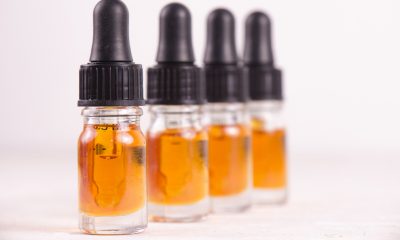A Canadian cannabis company is set to study minor cannabinoids for the treatment of epilepsy as part of a National Institute of Health (NIH) programme.
Cannabis research company, Cannabis Orchards, has signed an agreement with the National Institute of Health (NIH) to participate in the Epilepsy Therapy Screening Program (ETSP) to study minor cannabinoids, including CBGA and CBC.
The NIH programme was designed to facilitate the discovery of new therapeutics that address the unmet medical needs in epilepsy.
Almost all common epilepsy drugs have been included in the ETSP programme, including cannabidiol (CBD). The programme involves studying compounds in various preclinical models of epilepsy to determine the safety and efficacy of new candidate drugs for use as novel treatments.
Following completion of the qualifying process, Cannabis Orchards was chosen to submit minor cannabinoids, including cannabigerolic acid (CBGA) and cannabichromene (CBC), for inclusion in the programme.
Cannabis Orchards is a research-driven Canadian biotechnology company focused on furthering the development and commercialisation of novel cannabinoids and therapeutics.
The use of minor cannabinoids as an anti-seizure drug was subject to a patent submission made by the company in September 2022.
CEO, Dr Jamie Ghossein, commented: “After engaging in a rigorous qualifying process, we are proud to have been selected to register minor cannabinoids, namely CBGA and CBC, for inclusion in this world-renowned program. Minor cannabinoids will now be studied in the same way as common anti-seizure drugs as new alternatives for epilepsy treatment.
“Minor cannabinoids have demonstrated promise as alternatives to anti-seizure drugs for epilepsy treatment, including CBD. With differing efficacy and side effect profile, minor cannabinoids may prove effective as anti-seizure medications for chronic use with enhanced tolerability compared to standard therapies.”
Currently, the CBD-based Epidyolex, is the only FDA-approved cannabinoid treatment for drug-resistant epilepsy. With a market size expected to reach over USD$1.0 billion in 2023, there is a large market opportunity to offer alternative cannabinoids with enhanced efficacy and tolerability compared to CBD.
“Over the last several decades, minor cannabinoids were not possible to study as no cannabis variety produced enough content for isolation and testing,” continued Dr Ghossein.
“After several years of plant breeding efforts, Cannabis Orchards has successfully produced novel industrial hemp varieties with minor cannabinoid content, allowing for the isolation and study of minor cannabinoids in various models of disease.
“We look forward to leading the way for new therapeutic development using minor cannabinoids. This exclusive agreement highlights the start of a pipeline for minor cannabinoids as therapeutic options for various disease models.”
According to a statement from the company, Cannabis Orchards successfully produced CBGA isolate and completed shipment to the NIH in quarter three of 2022.
Home » Health » Epilepsy » Minor cannabinoids to be studied as part of NIH epilepsy programme

 News6 months ago
News6 months ago
 Science5 months ago
Science5 months ago
 Industry6 months ago
Industry6 months ago
 News6 months ago
News6 months ago
 News5 months ago
News5 months ago
 Health5 months ago
Health5 months ago
 News5 months ago
News5 months ago
 Health3 months ago
Health3 months ago










